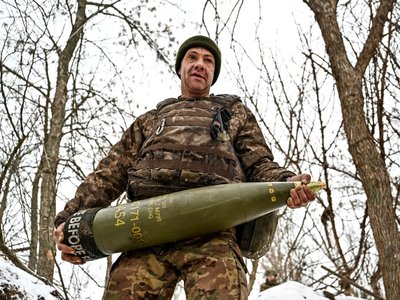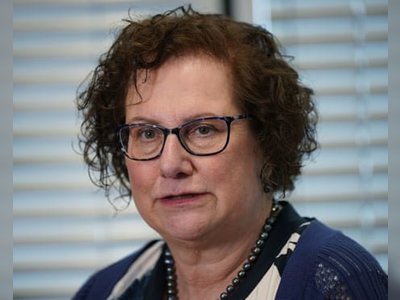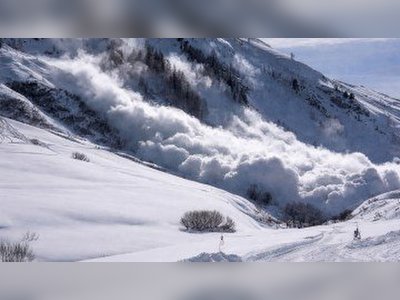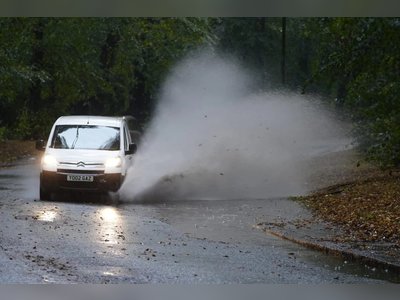
Germany’s ‘Green’ Energy Failure: Germany turns back to coal and natural gas as millions of its solar panels are blanketed in snow and ice
Depending on whom you ask, the program has been praised by many environmentalists and others called it a failure.
In 2000 when the program was first launched, 6.6 percent of Germany’s electricity came from renewable sources such as solar and wind. In 2019, almost two decades later, the share reached 41.1 percent. That’s where the good news end. In 2000, Germany had an installed capacity of 121 gigawatts with 577 terawatt-hours generated, which is 54 percent as much as it theoretically could have done (that is, 54 percent was its capacity factor). But in 2019, the country only produced a meager 5 percent more (607 TWh).
During the twenty-year period, the Germans also paid a hefty price for the program. For example, the average cost of electricity for German households has doubled since 2000. By 2019, households had to pay 34 U.S. cents per kilowatt-hour, compared to 22 cents per kilowatt-hour in France and 13 cents in the United States, according to data from IEEE Spectrum.
That’s not all. This year, the coldest weather in a decade arrives in western Europe. Bitter cold and snow sweep across western Europe including Germany, Great Britain, and France. Germany faces a sober reality as millions of its solar panels are blanketed in snow and ice and breathless. The freezing weather has rendered its 30,000 wind turbines to idleness. It is not just the wind turbines. Solar panels covered with snow are also rendered useless. You may call it “coal comfort” as a total collapse in the wind and solar output leaves freezing Germans desperate for coal-fired power.
For many years, Germany has been held up as the world’s wind and solar capital. But now, the deadly winter is putting a strain on Germany’s Energiewende program and the country has to be rescued by, you guessed it, “dirty” fossil fuels.
So looking back two decades, how well did Germany do? To measure how successful the Energiewende program has been toward the ultimate goal of decarbonization. In the December 2020 article titled, “Energiewende, 20 Years Later,” IEEE concludes with the following:
“In 2000, the country derived nearly 84 percent of its total primary energy from fossil fuels; this share fell to about 78 percent in 2019. If continued, this rate of decline would leave fossil fuels still providing nearly 70 percent of the country’s primary energy supply in 2050.”
However, the 6 percent gain does not tell the whole story. In January of this year, German RBB (Berlin-Brandenburg) public broadcasting recently aired a report (video below) on the region’s current electricity supply in winter. As part of the report, Harald Schwarz, professor of power distribution at the University of Cottbus, went straight to the point saying: “die gesicherte Leistung von Wind + Sonne = 0,” which means:
However, the 6 percent gain does not tell the whole story. In January of this year, German RBB (Berlin-Brandenburg) public broadcasting recently aired a report (video below) on the region’s current electricity supply in winter. As part of the report, Harald Schwarz, professor of power distribution at the University of Cottbus, went straight to the point saying: “die gesicherte Leistung von Wind + Sonne = 0,” which means:
“The guaranteed output of wind + sun = 0.”
Here’s how Prof. Schwarz sums it up in an interview with German RBB
“The guaranteed output of wind energy and photovoltaics is between zero, two or three percent. So de-facto is zero.”
Below is a video of the interview in German. You can turn the English subtitle on YouTube.
During the report, German RBB interviewed Daniel Bartig, a mechanic at the LEAG Lausitz plant. Bartig tells RBB he is skeptical that green energy can do the job, and says “the greatest share of power is currently coming from coal.”
Further down in the report, RBB also interviewed Harald Schwarz, professor of power distribution at the University of Cottbus. Schwarz tells RBB he’s very skeptical of wind and solar energy doing the job. As Germany moves to shut down its reliable nuclear and coal power plants, the gap between supply and demand will grow dangerously wide.
Here is how Prof. Schwarz explained it:
“With this supply of wind and photovoltaic energy, it’s between 0 and 2 or 3 percent – that is de facto zero. You can see it in many diagrams that we have days, weeks, in the year where we have neither wind nor PV. Especially this time for example – there is no wind and PV, and there are often times when the wind is very miniscule. These are things, I must say, that have been physically established and known for centuries, and we’ve simply totally neglected this during the green energies discussion.”
RBB then warns of the increased odds of blackouts for the region, like the blackout in Berlin in 2019.
So what’s the plan for the future? The reporter went on to say that Germany will have to rely more on natural gas from Russia, coal power from Poland, and nuclear power from France.
Below is a partial transcript of the video.
“All good things come from above, not all from the perspective of the energy transition.
The hidden sun prevents photovoltaics from allowing any air movement. Wind turbines are in place regenerative winter rest for all our electricity comes first from the Lausitz power plants which also run 100% from coal. Percent of the security of supply that all need together as.
Electricity consumers are now being secured and safeguarded by the power plants. That means we have a completely normal winter that we face and what.
Sun and wind can’t afford it. Now, we’re replacing it completely with black ones (dirty fossil fuels – emphasis ours).
That means Daniel Barth and his colleagues have my hands full. The young man keeps Brandenburg currently through the energy transition accompanied sees the process skeptically. Yes, you talk about it every day so want.
Daniel Barth: They often open the energy map of Germany that you can see where the electricity is generated now and at the moment it is really a big one. Share of this is coal-fired power in neighboring countries and there you can see that you may not be completely aware of the country.
Renewable energy can supply coal and stop nuclear energy. Both can be done without the threat of blackout for the Bundestag. Harald Schwarz, professor of power distribution at the University of Cottbus, comes to a questionable conclusion in the electricity mix from the components of nuclear, coal, gas, and renewable are already two.
Professor Harald Schwarz: The guaranteed output of wind energy and photovoltaics is between zero, two, or three percent. So de-facto is zero. You can see that what we have days in the year where there is neither wind.”










